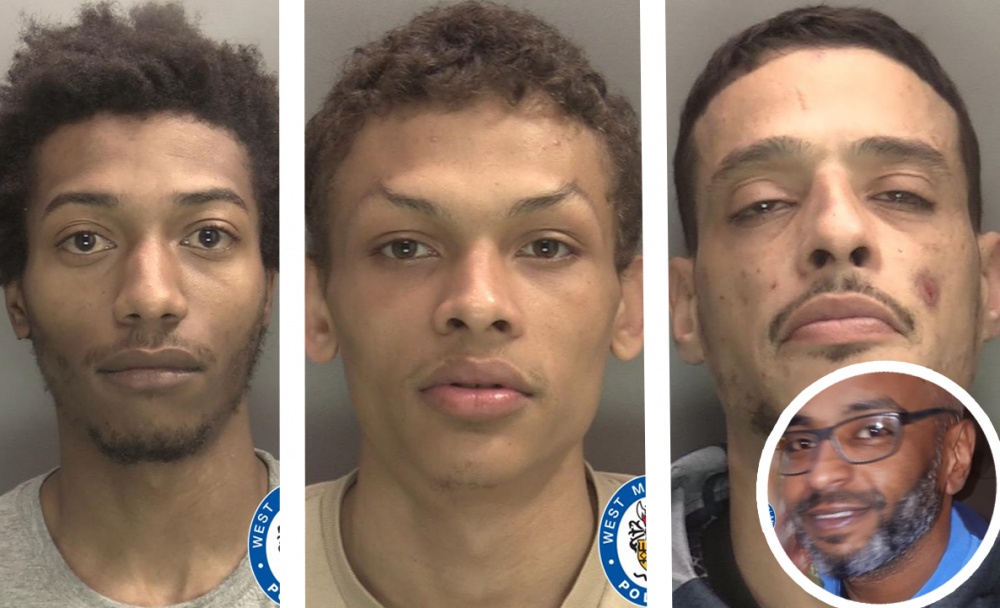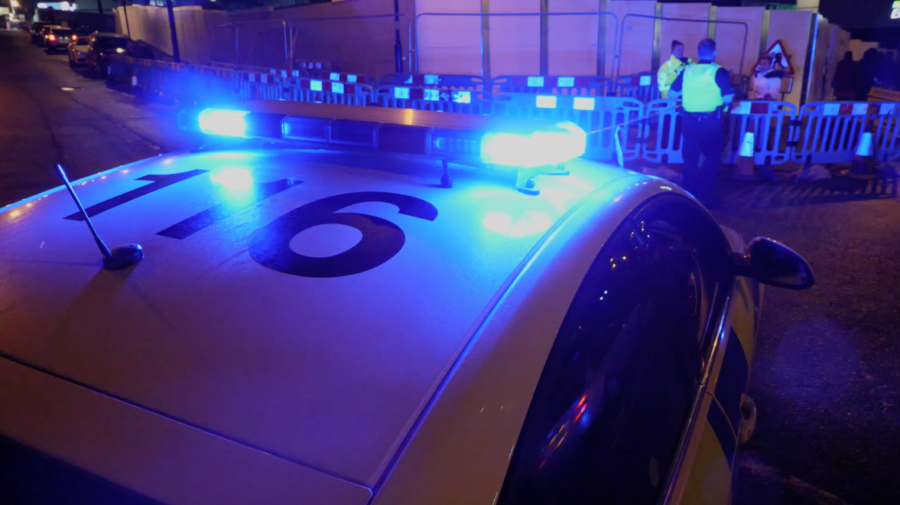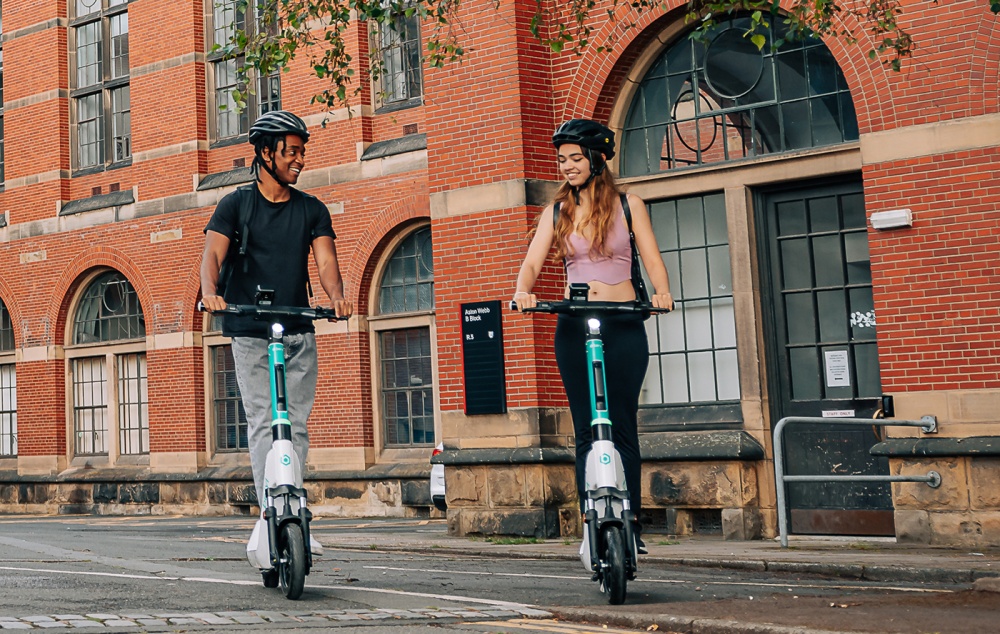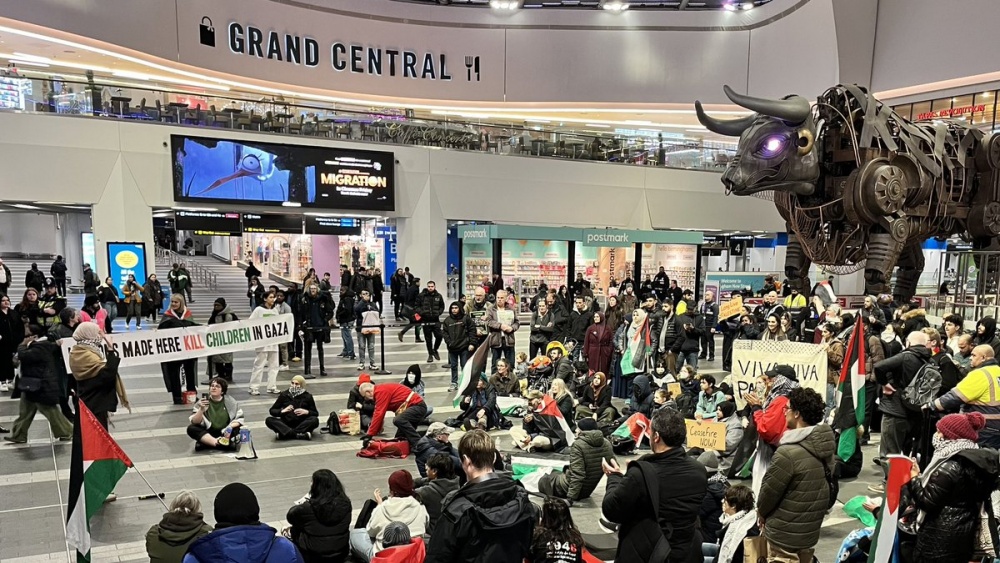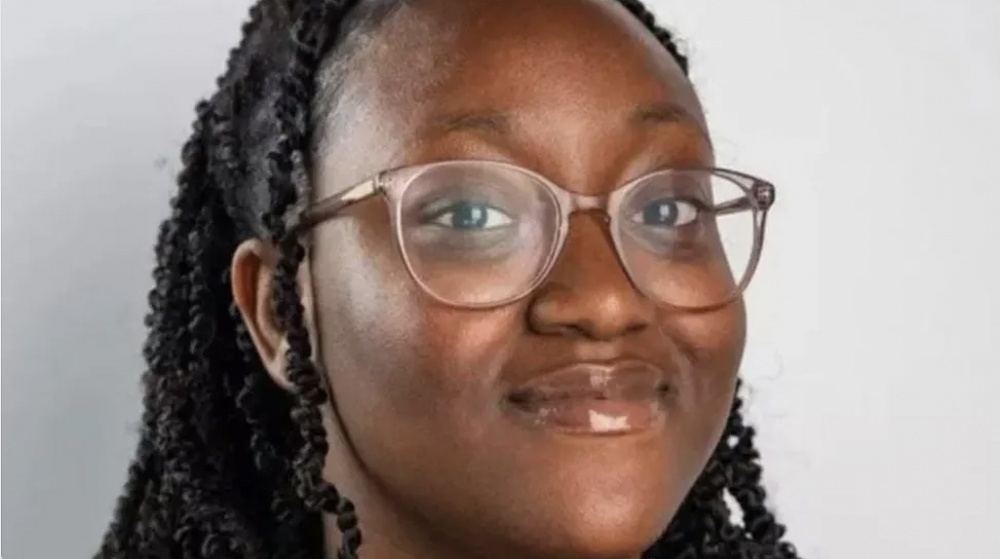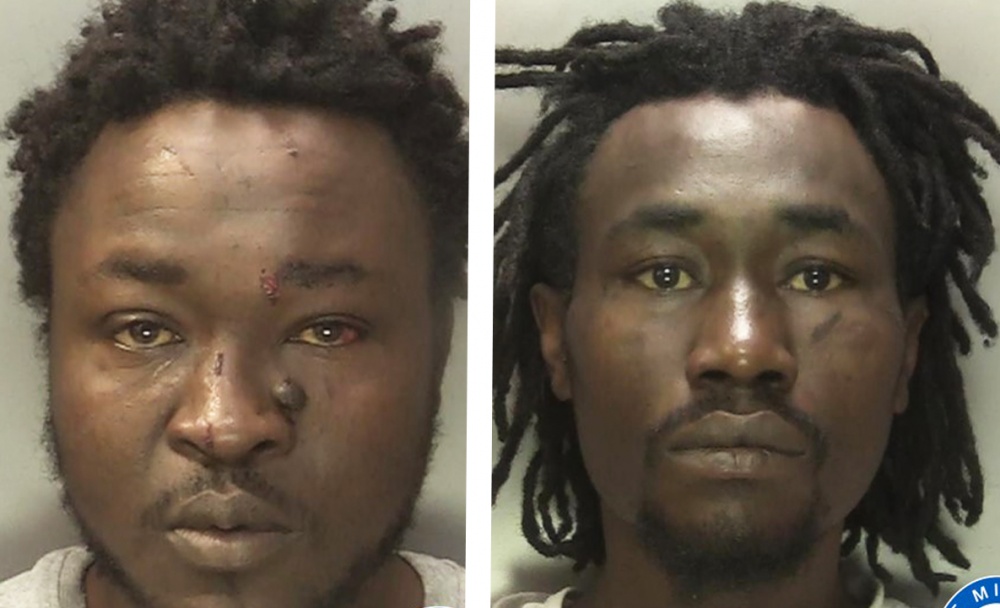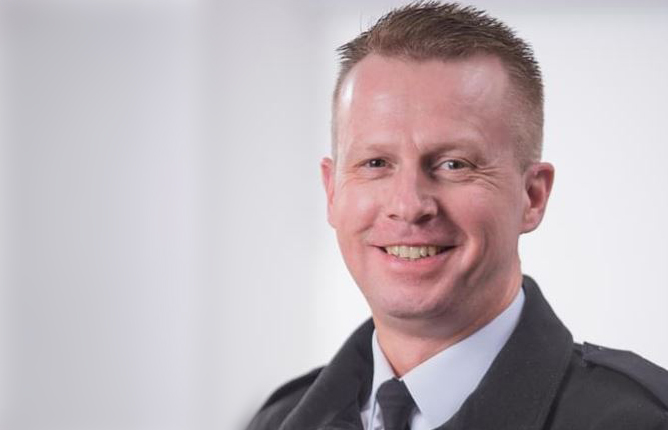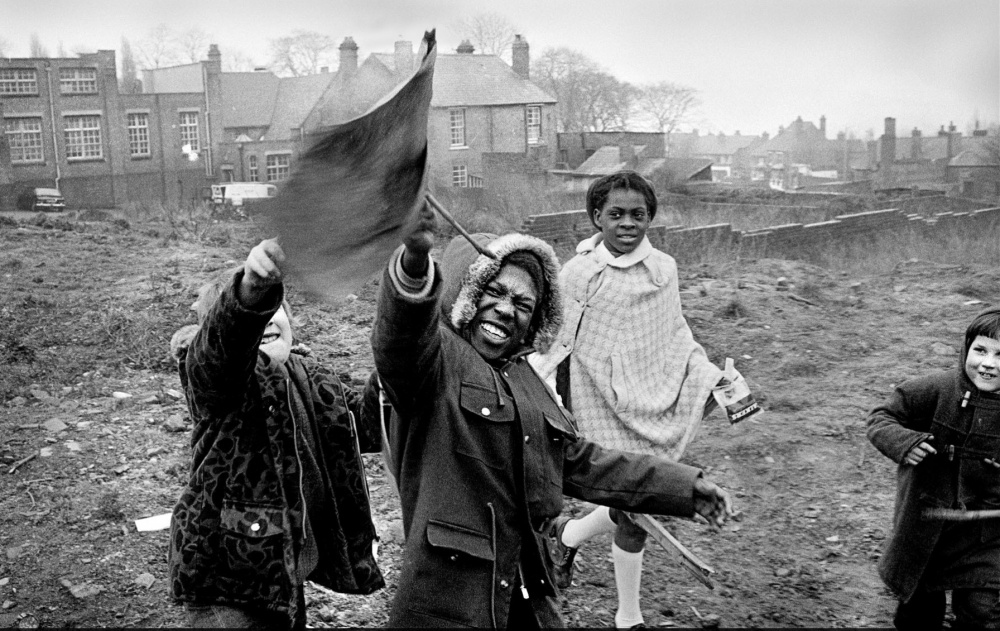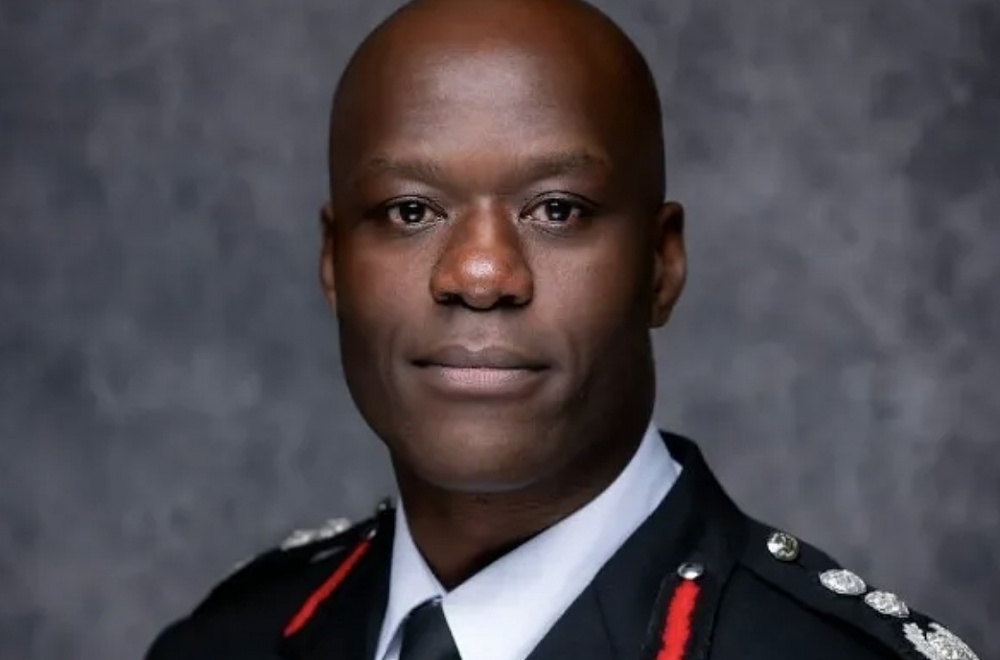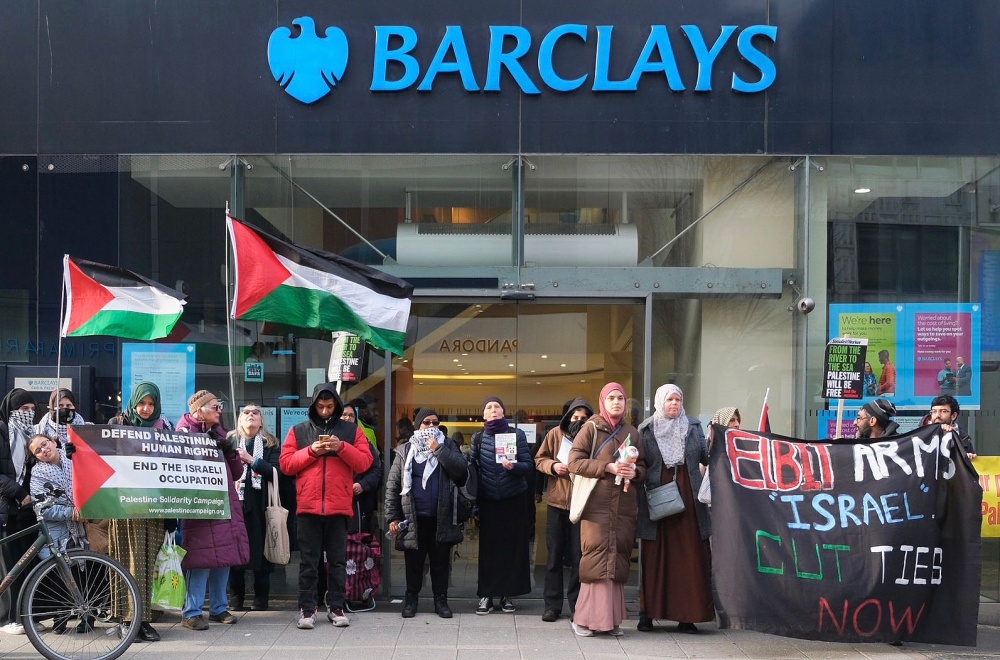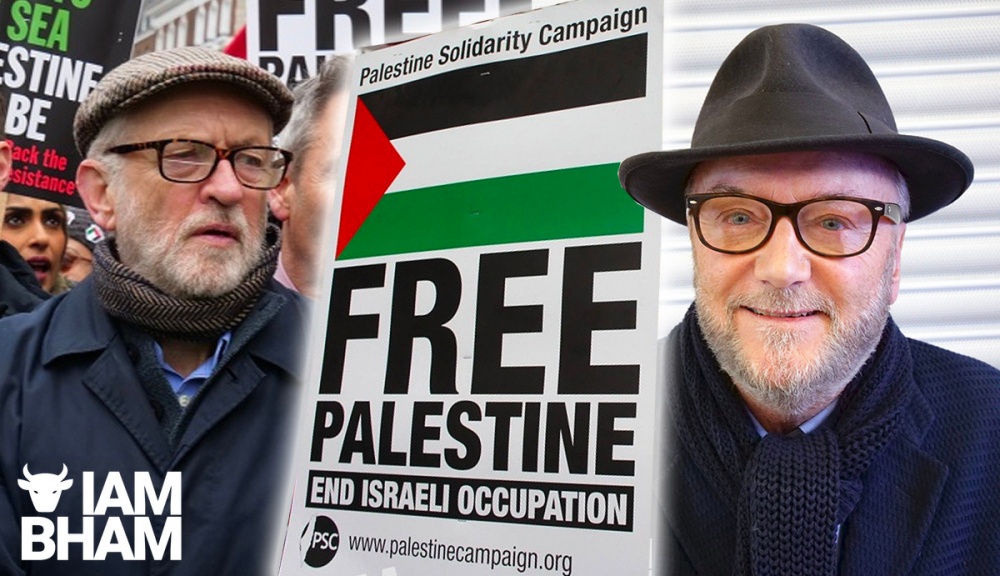LGBTQ+ groups calls for cultural appropriation ban at Birmingham Pride celebrations
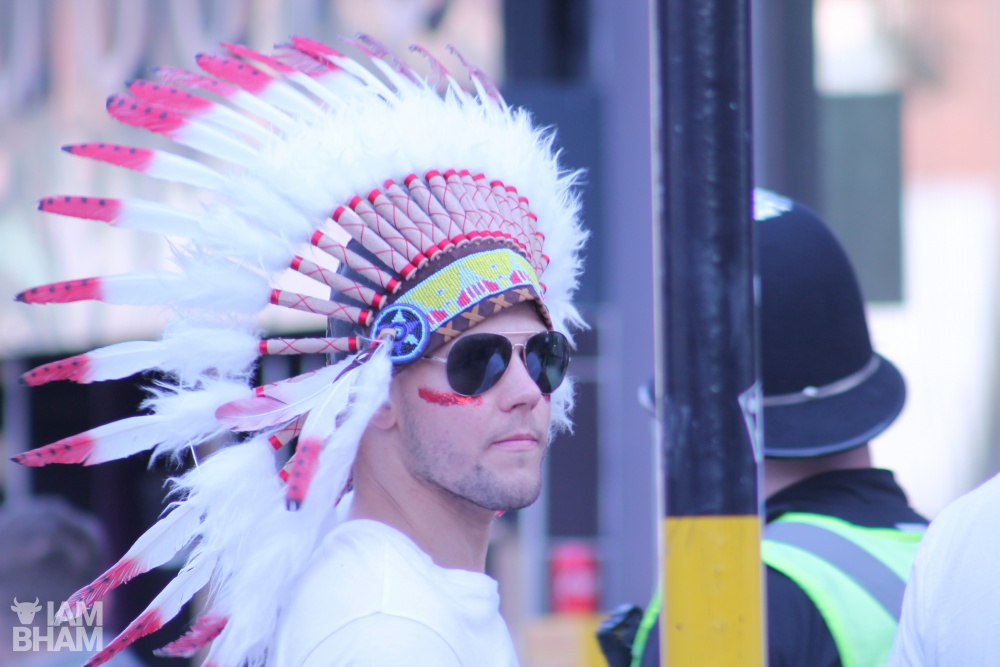
A number of LGBTQ+ groups across the city have called on Birmingham Pride to ban cultural appropriation, following an I Am Birmingham article highlighting the issue was published last month.
In light of several Native American headdresses being worn as ‘costumes’ at Birmingham Pride celebrations, representatives from queer groups of colour have condemned the practice.
During Pride bank holiday weekend at the end of May, cultural costumes were in abundance, as worn by ethnic minority community groups and individuals, their supporters and allies, as a form of appreciation and sharing of customs and cultures.
However, there were also a number of instances where individuals were sporting exaggerated and insensitive cultural and religious dress items, without any respect or context of their cultural heritage. The practice is commonly referred to as ‘cultural appropriation’ and is widely acknowledged as a form of demeaning racial stereotyping.
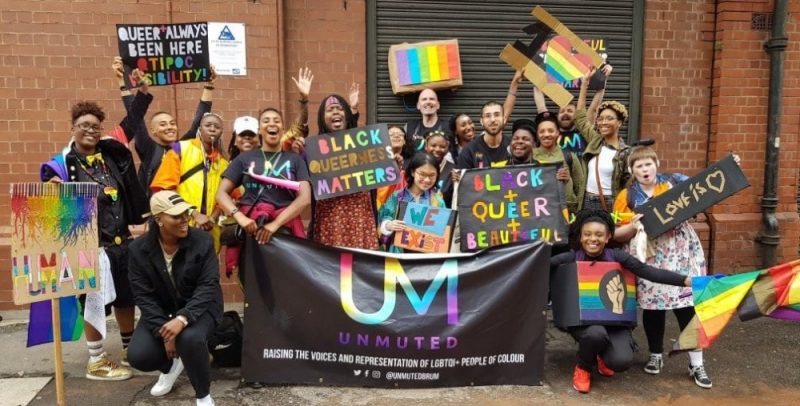 UNMUTED
UNMUTED Suriya Aisha is founder of UNMUTED, a community directed social and peer support network in Birmingham for people of colour who identify as Lesbian, Gay, Bisexual, Transgender, Queer or Intersex (LGBTQI). She told I Am Birmingham:
“I think Birmingham Pride has deeper and wider systematic things to face of which cultural appropriation is one of the things on the surface.
“So whilst I think banning cultural appropriation is a good idea. Really, there needs to be deeper work done by the pride organisers to raise awareness and visibility of issues other cultures and nationalities faces as LGBTQI, so that a ban isn’t tokenistic.
“I would encourage Pride to gather feedback and evaluation from the people of Birmingham and beyond to see if the pride festival reflects their city. An event or product that doesn’t think about all of the audience it is trying to serve isn’t sustainable.
“I want Birmingham Pride to work harder at centring the Pride festival around those still most marginalised in the LGBTQI community, who are people of colour, asylum seekers, trans people and those with illnesses and disabilities; remembering Pride’s protest roots.”
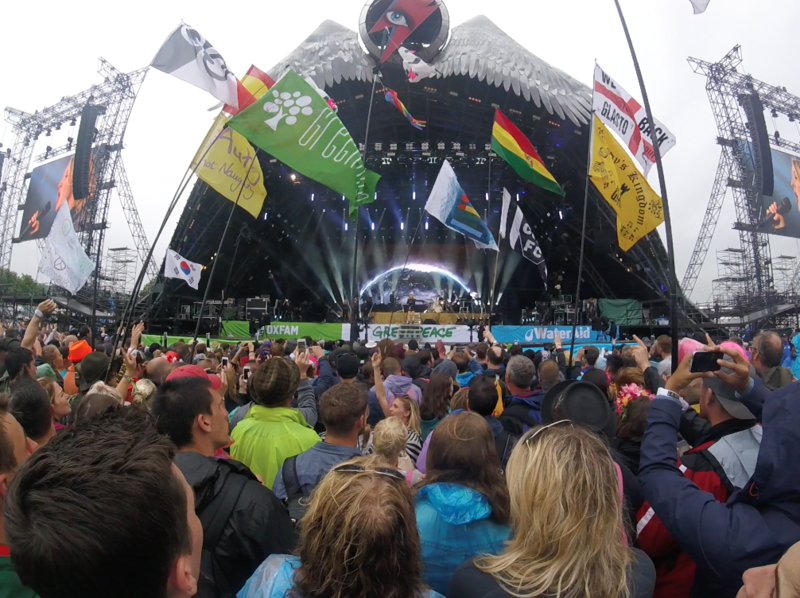 Guy Hurst
Guy Hurst In 2014, Glastonbury Festival banned the wearing of Native American war bonnets after a petition on change.org, which had initially only garnered 65 signatures. While it wasn’t an isolated call to action, it was the first time the headdresses had been banned for cultural insensitivity at a music festival in the UK.
Stourbridge based campaigner Daniel W. Round, who launched the Glastonbury petition, stated at the time: “There has long been consensus among indigenous civil rights activists in North America about the wearing of headdresses by non-Natives – that it is an offensive and disrespectful form of cultural appropriation, that it homogenizes diverse indigenous peoples, and that it perpetuates damaging, archaic and racist stereotypes.”
And so it begs the question, why is wearing of the headdress as essentially a racially charged fancy dress costume still allowed at festivals and community events, such as Birmingham Pride; which aims and claims to reflect the diversity and multicultural nature of its city’s population?
As I wrote before, I personally saw one individual roaming around for about an hour giving ample opportunity for security staff to have the offensive item removed.
This wasn’t the only Native American headdress on display at Pride, there were several others; none of which were part of any ethnic minority or Native American group in attendance, neither were they part of any ‘Village People’ ensembles. They were just white people treating an important cultural clothing as nothing more than a costume.
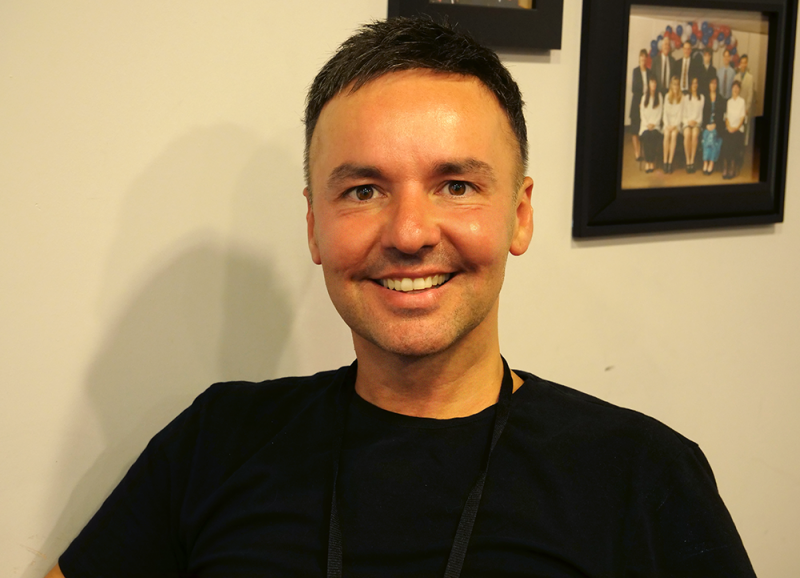 Adam Yosef
Adam Yosef Following our initial piece on cultural appropriation at Birmingham Pride 2018, event director Lawrence Barton responded:
“Birmingham Pride is against cultural appropriation completely, without exception and does not condone it in anyway shape or form. We will take steps to ensure staff are better trained and educated to make a judgement as to what is and what isn’t offensive or acceptable.
“Whilst we do not condone cultural appropriation in anyway, we also have to consider what could have been a completely innocent oversight on the part of the wearer.”
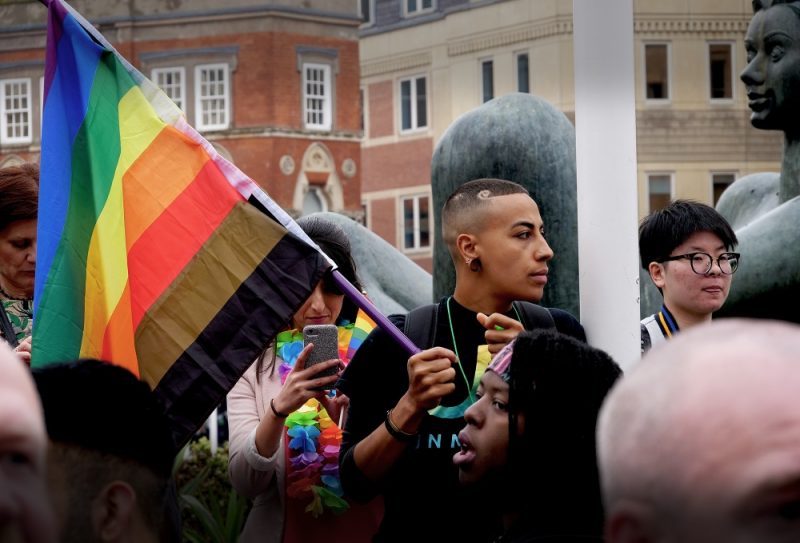 Staff Reporter | I Am Birmingham
Staff Reporter | I Am BirminghamWhilst the response helps to push the idea that Birmingham Pride is, in fact, against cultural appropriation by ensuring that there is an update to their cultural sensitivity training policies for staff and security members; there isn’t as yet clarification as to which offensive items might be on an official ban list, similar to that of Glastonbury.
Furthermore, if we were to “consider what could have been a completely innocent oversight on the part of the wearer”, are we not then absolving him of his blame? And where is the innocence in his oversight?
An innocent oversight is not boiling enough water for everyone to have a cup of tea when you put the kettle on… there is a distinct difference between that and a non-Native person wearing a Native American war bonnet to Birmingham Pride because he or she enjoys the aesthetic; and in the process reducing an entire culture, genocide, land theft and the continuing years of systematic racism down to a costume headpiece for a festival.
That’s a pretty shitty move if you ask me, and clearly evidence that a lot of education on racism and racial insensitivity is still required.
The main point here is not just the individual’s actions but the narrative of power and privilege coupled with and underlying the very real issues of racism that exist in the LGBTQ+ community, and across many of the UK’s culturally white-dominated Pride events, especially in cities with vast non-white populations such as Birmingham, London and Manchester. It’s about the impact of minor aggressions in the dynamic and scope of major structural racism.
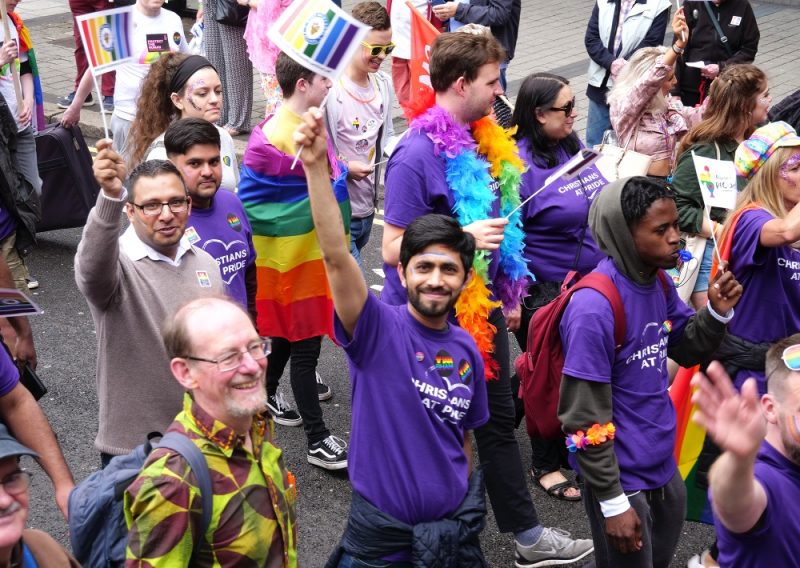 Adam Yosef
Adam Yosef What is cultural appropriation?
Cultural appropriation is a concept dealing with the adoption of the elements of a minority culture by members of the dominant culture.
The Cambridge dictionary defines it as: “the act of taking or using things from a culture that is not your own, especially without showing that you understand or respect this culture”.
It is distinguished from “cultural appreciation” due to the influence of a colonial element and imbalance of power, with usually dominant cultures selectively co-opting other traditions, without showing due respect or care for the community from which it is taken.
Cultural appropriation is often portrayed as harmful in contemporary cultures, and is claimed to be a violation of the collective intellectual property rights of the originating, minority cultures, notably indigenous cultures and those living under colonial rule.
Essentially, it’s when culturally significant items are appropriated for fashion rather than as a celebration of that culture.
Sometimes when multiple cultures come together, cultural appropriation can include using other cultures’ religious traditions, fashion, symbols, language, and songs. While a non-Native person wearing a Native American war bonnet as a “fashion accessory” is commonly cited as an example of cultural appropriation, the practise also extends to items like the dashiki, bindi and kimono; as well as positively embracing ‘ethnic’ hairstyles on white people while dismissing them when fashioned by those to whom they are natural and native.
Earlier this year, Gucci was criticised for accessorising white models with turbans, with many Sikhs condemning the move as a huge sign of disrespect, highlighting that the turban is indeed a symbol of faith not a fashion accessory.
Dear @gucci, the Sikh Turban is not a hot new accessory for white models but an article of faith for practising Sikhs. Your models have used Turbans as ‘hats’ whereas practising Sikhs tie them neatly fold-by-fold. Using fake Sikhs/Turbans is worse than selling fake Gucci products pic.twitter.com/gCzKPd9LGd
— Harjinder Singh Kukreja (@SinghLions) February 22, 2018
Many ethnic minority and marginalised communities often urge for mutual understanding and a respectful embracing of their history and culture rather than actively and harmfully exploiting it.
Native American blogger Chelsea Vowel writes:
“Unless you are a native male from a Plains nation who has earned a headdress, or you have been given permission to wear one (sort of like being presented with an honorary degree), then you will have a very difficult time making a case for how wearing one is anything other than disrespectful. Even if you have ‘native friends’ or are part native yourself, individual choices to “not be offended” do not trump our collective rights as peoples to define our symbols.”
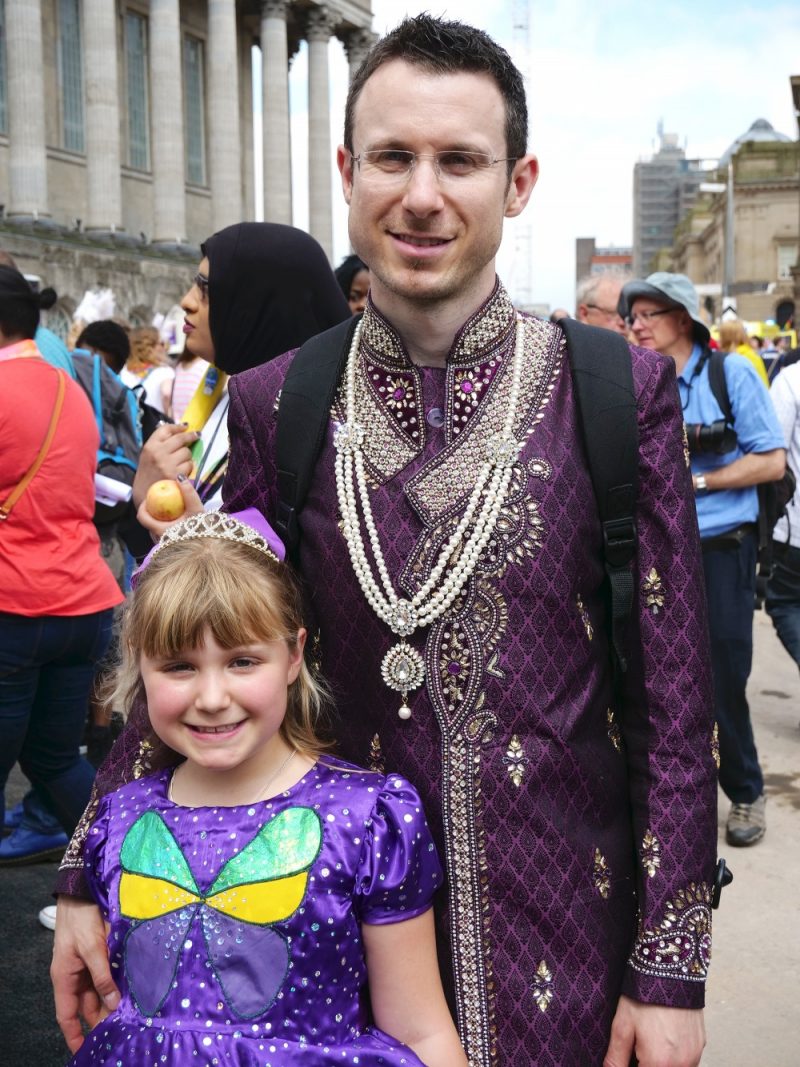 Adam Yosef
Adam Yosef Cultural appropriation Vs Cultural appreciation
It has to be noted, repeatedly it seems, that the issue at hand here is cultural appropriation and not cultural appreciation. Embracing the cultures, traditions and religious practices of friends, colleagues and family with their blessing and with respect is a different matter, and not one of concern here.
Treating the traditions of minority and often oppressed communities as fashion accessories and costumes while affording them no respect, understanding, empathy or solidarity in their struggles is the problem.
I Am Birmingham discussed the issue with South Asian activist Khakan Qureshi:
“As the Founder of Birmingham South Asians LGBT, I am very mindful of the dynamics of the group and the fact some of the group members are in interracial relationships. Last year, one of the group members, who is Sikh, invited his partner, who is white British, to the Pride Parade.
“As it happens, the white partner wore the Native [American] Indian headdress and attire. Now, do I take offence and exclude him, knowing full well the history of Native Indians and their treatment at the hands of white colonisers, or do I demonstrate that I am more inclusive and open to the partner of the regular group member and allow him to join dressed as he was?
“As far as I can remember, nobody took offence at that time. What people said afterwards, I do not know. I am of that generation of South Asians who grew up with white people, especially women, who would wear a sari or traditional Asian attire to weddings and parties out of respect for the culture. Was it cultural appreciation? I don’t know, as we just admired them for wearing the outfits in a time when we, as BAME community, were being treated differently.”
He added: “I think, for me, the more pressing issue, is to have Pride diversify more in representation and attracting people from other cultures, faiths and communities rather than focus on the whiteness of the event and how they dress.”
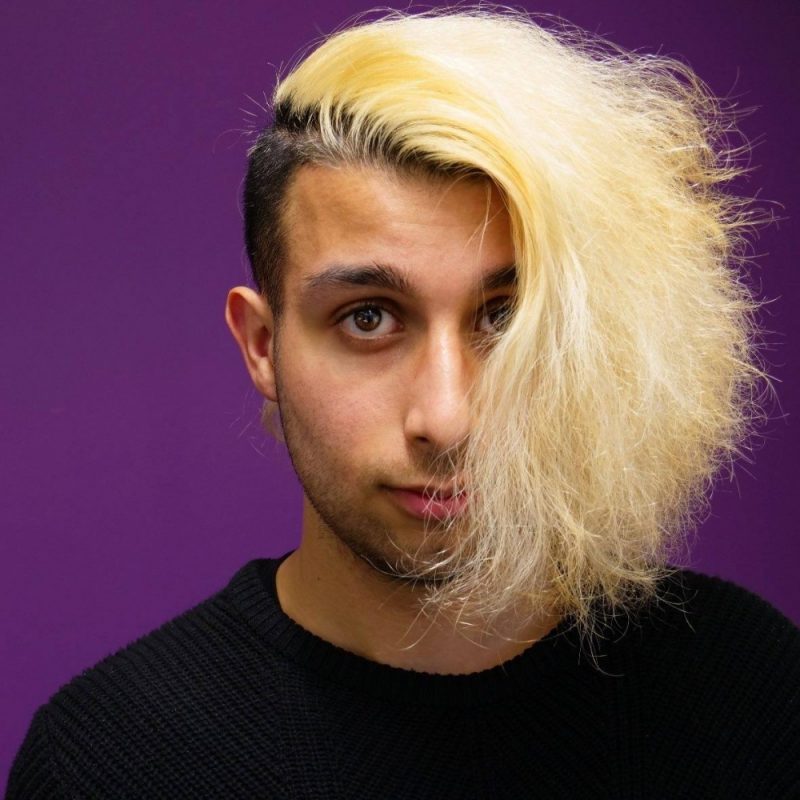 Adam Yosef
Adam Yosef Bisexual activist Harry Alimo, however, feels the distinction between the two isn’t as difficult to separate:
“I think people need to understand that if they’re going to take from another culture, they need to understand the cultural significance of what they’re taking, and have to ask if it suits the purpose of what they are doing with this culture.
“Are they just turning up to a kind of ‘Halloween’ thing, just because, or are they sharing the historic context of that thing?
“I think they’re exacerbating their own privilege because they feel they can get away with it and nobody will say anything, and even if someone does say something, it’s only us criticising them, it doesn’t change the power dynamic.
“I think the Birmingham Pride people are more corporate than local. They won’t do anything about it unless they’re called out on it. We need people to call out cultural appropriation, ask people why they’re doing it; and if it’s not cultural appreciation then it’s cultural appropriation and cultural ignorance.
“I agree, coming from the stance that we should ban it because of the racism within Pride, but I also understand that it kind of goes against freedom of speech where people express themselves in stupid ways for stupid reasons; and need educating.”
Will Birmingham Pride ban cultural appropriation costumes?
It’s good to know that the Birmingham Pride team are aware of cultural appropriation and do stand against it. There would have been a time not so long ago when even that would have been an ask.
It’s also promising that they are addressing the issue through staff training. But will they take effective enough action? I think it’s time they addressed the issue head-on, as many in the community expect.
In the same way much larger events such as Glastonbury Festival have successfully dealt with the issue. Could Birmingham lead the way for other Pride celebrations across the country in adopting a more progressive approach? One suited to the social and equality movements of the 21st Century?
It’s time Birmingham Pride reflected its key communities and audience, and banned offensive racially stereotypical costumes from an event traditionally celebrating the fight against oppression.





